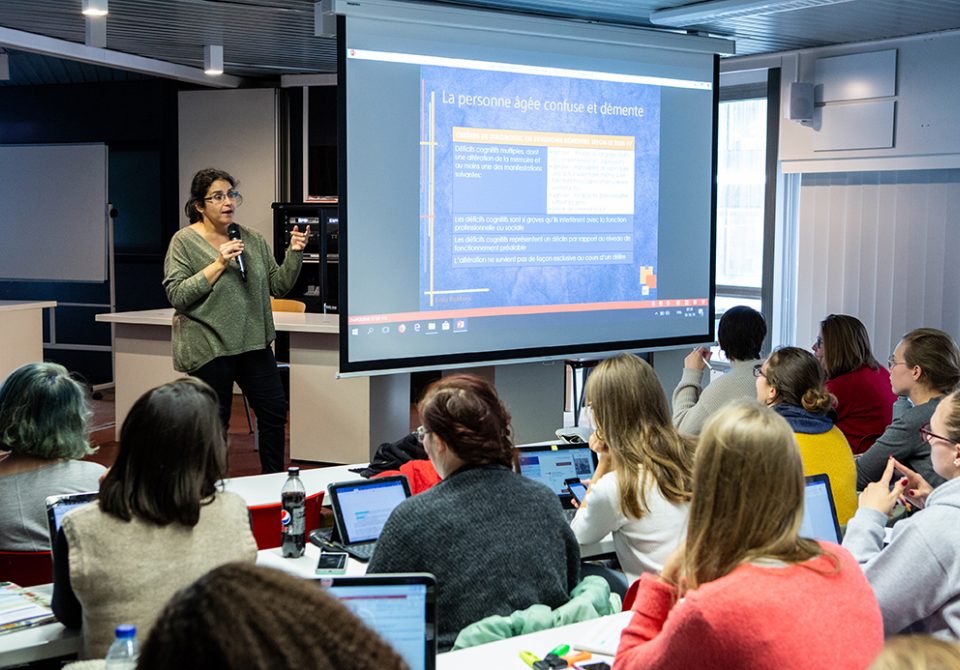Assistant in Psychology
Human & Social Sciences
In brief
Excellent interpersonal skills, ability to adapt to a wide range of situations, with the aim of understanding & helping people in difficulty
The strengths of the Bachelor: Assistant in Psychology
- The programme kicks off with a week of specific preparatory classes.
- A pragmatic approach to psychology through the interaction between theory and practice, which is built into every teaching unit from block 1 onwards.
- A maximum group complement of 40 for courses involving practical work.
Good to know
As the title ‘Psychologist’ is protected in law, holders of the Bachelor ‘Assistant in Psychology’ can only acquire this title by pursuing their studies at Master’s level at University (which you can do via educational pathways between the HE system and Universities).
About the job
The Assistant in Psychology sees the whole human being. They use their skills to provide qualitative care and support to clients in terms of information, guidance, prevention, psychosocial care and support, and remediation. Their work is centred on making the patient/client feel welcome, respected and listened to.
They participate in psychological evaluation and in developing and administering an individual or group care strategy.
The work is often undertaken within a multidisciplinary team context (collaboration with doctors, judges, speech therapists, physiotherapists, occupational therapists, teachers, pediatric nurses, human resource managers, etc.).
The Programme of Study
Programme3 years - 180 credits
-
Block 1
The foundations of psychology: the scientific underpinnings, the legal framework and the professional community in which it is practiced, its philosophical and historical foundations, psychology in different cultures, etc. You’ll participate in practical observation tasks as well as perform exercises in the use of psychological techniques right from the start of the programme.
-
Block 2
In block 2, you can choose between 3 options:
- Clinical psychology: using observation, testing and interviewing, this option instructs students in how to provide clinical care to individuals suffering from personal, family, social or institutional difficulties.
- Pluralistic approaches in educational psychology: The objective of this option is to enable students to undertake an educational or re-educational action aimed at individuals displaying psychological adjustment or learning difficulties. This option concerns people of all ages and stages of life (childhood, adolescence, adult and old age) and extends to the family, the school and society.
- Workplace psychology: the management of psychological problems related to the world of work, education and careers guidance, recruitment and risk management related to conditions at work (stress, harassment, workplace accidents, etc.).
-
Block 3
The courses of the option chosen in block 2 continue. A large proportion of the programme is devoted to work placements and a final-year dissertation.